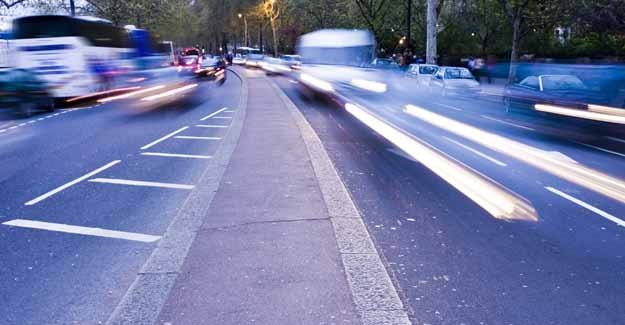Fuel duty taxing voters more than national insurance
For all the political and media debate about national insurance, it is the level of fuel duty payable at the pumps which is seen by the public as the more important tax issue at the election.
An Ipsos MORI survey for the RAC Foundation asked 1,001 adults across England, Scotland and Wales how important each of four different types of taxation are to them when it comes to choosing how to vote. Income tax was seen as very or fairly important by 74%, followed by fuel duty on petrol and diesel (69%) and then VAT (64%). National insurance was bottom of the list (62%).
The result is the same for both the population in general and just car drivers.
Concern about fuel duty is at its greatest in rural areas.
Commenting on the findings, Professor Stephen Glaister, director of the RAC Foundation, said:
“It is clear that despite all the political and media argument about national insurance, fuel duty is actually the more important taxation issue on the doorstep.”
“Government figures show the price of a litre of unleaded continues to reach new highs. At an average of 121p it is up almost 0.5p in a week and a fifth above the price of a year ago.”
“All too often transport comes way down the political agenda, yet the price of fuel means motoring has now become a major economic issue at the heart of the election campaign.”
“With car-owning households spending around 14% of their disposable incomes on buying and running a vehicle, the cost of staying mobile is in danger of becoming prohibitive. It is no wonder so many people see the level of fuel duty as such a big concern.”
“There is a real danger politicians are going to kill the goose that lays the golden egg. You can only tax people so far and if you force people off the road through over taxation you risk snuffing out economic recovery.”
“Some more clear statements are now needed from the parties on how they will actually address the cost of motoring. With millions of drivers still deciding how to vote, it would be in their interests to do so.”
Of the current price of petrol 57.19p goes to the Exchequer in the form of fuel duty. VAT is also payable. Fuel duty increased by 1p on 1st April 2010. It is set to rise by another 1p on 1st October 2010 and 0.76p on 1st January 2011.
92% of passenger journeys take place on the roads, 7% on the railways and 1% by plane.
ENDS
Contact:
Philip Gomm – Head of External Communications – RAC Foundation
020 7747 3486 / 07711 776448 / 020 7389 0601 (ISDN)
Notes to editors:
The RAC Foundation is a charity that explores the economic, mobility, safety and environmental issues relating to roads and responsible road users. Independent and authoritative research, carried out for the public benefit, is central to the Foundation’s activities.
The survey was carried out by Ipsos MORI between 16th and 22nd April 2010. The results are based on 1,001 face-to-face in-home interviews with British adults (including 655 who have driven a car in the past month). Data have been weighted to reflect the known population profile.
When asked:
“I am going to read out a number of different types of taxation. For each one, please tell me how important it will be in helping you to decide which party to vote for at the general election on 6th May.”
74% said income tax is very or fairly important (80% among car drivers)
69% said fuel duty is very or fairly important (77% among car drivers – 51% say it will be very important)
64% said VAT is very or fairly important (69% among car drivers)
62% said national insurance is very or fairly important (65% among car drivers)
Analysis of the importance of fuel duty by area type shows:
62% of those in London say fuel duty is very or fairly important
68% of those in metropolitan areas say fuel duty is very or fairly important
70% of those in other urban areas say fuel duty is very or fairly important
76% of those in rural areas say fuel duty is very or fairly important
Fuel prices from the Department of Energy and Climate Change are available at:
http://www.decc.gov.uk/en/content/cms/statistics/source/prices/prices.aspx


